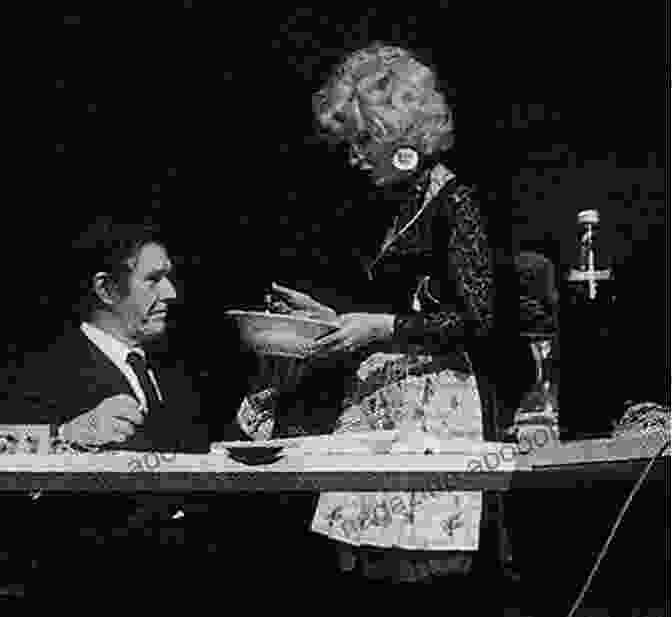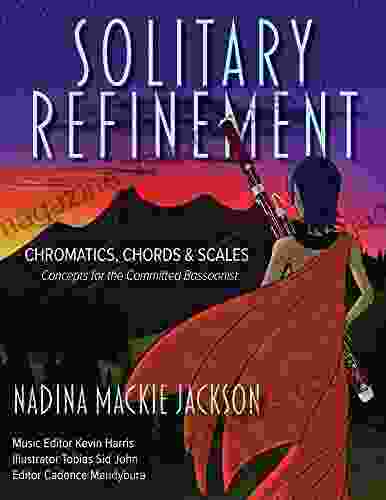Cathy Berberian (1925-1983) was a groundbreaking soprano whose boundless creativity and experimental spirit left an indelible mark on the world of contemporary music. Her unique vocal techniques and fearless approach to performance transformed the very definition of what a voice could do, challenging conventions and opening up new possibilities for musical expression.
5 out of 5
| Language | : | English |
| File size | : | 2325 KB |
| Text-to-Speech | : | Enabled |
| Screen Reader | : | Supported |
| Enhanced typesetting | : | Enabled |
| Print length | : | 269 pages |
| Paperback | : | 168 pages |
| Item Weight | : | 14.4 ounces |
| Dimensions | : | 8.5 x 0.38 x 11 inches |
Early Life and Training
Born in Attleboro, Massachusetts, Berberian's musical journey began at an early age. She studied piano and violin, but her true passion lay in singing. After graduating from the New England Conservatory of Music, she embarked on a traditional operatic career, performing roles in works by Mozart, Verdi, and Puccini. However, her restless spirit and insatiable curiosity soon led her down an unconventional path.
The Experimental Edge
In the 1950s, Berberian encountered the music of Italian composer Luciano Berio, who became her mentor and lifelong artistic collaborator. Berio's avant-garde compositions pushed the boundaries of traditional musical forms, and Berberian embraced them with enthusiasm. She developed a remarkable ability to produce extended vocal techniques, including microtones, glissandos, birdcalls, and percussive effects.

Vocal Virtuosity
Berberian's vocal virtuosity extended far beyond technical prowess. She possessed a deep understanding of language and used her voice to convey a wide range of emotions and meanings. Her performances were often theatrical, combining elements of opera, spoken word, and experimental sound. She collaborated with leading composers of the time, including John Cage, Krzysztof Penderecki, and Pierre Boulez, who recognized her unique ability to bring their avant-garde scores to life.
Opera and Beyond
Despite her involvement in experimental music, Berberian never abandoned her operatic roots. She brought her innovative vocal techniques to traditional opera roles, challenging conventions and creating groundbreaking interpretations. Her performance of Claudio Monteverdi's "Coronation of Poppea" in 1964 became legendary, showcasing her ability to seamlessly merge the old and the new.
Impact and Legacy
Cathy Berberian's influence on contemporary music is immeasurable. She shattered the preconceptions of what a voice could do and paved the way for countless future performers to explore the full potential of human vocality. Her experimental techniques have become part of the canon of contemporary music, inspiring generations of singers and composers alike.

Pioneer and Innovator
Cathy Berberian was more than just a singer; she was an innovator, a visionary, and a pioneer of contemporary music. Her fearless spirit, relentless creativity, and unparalleled vocal abilities continue to inspire and influence musicians and listeners around the world. Her legacy as a pioneer of contemporary vocality is secure, and her voice remains a testament to the transformative power of music.
Cathy Berberian's extraordinary life and contributions have left an enduring mark on the world of music. Her pioneering work in contemporary vocality expanded the boundaries of what was possible with the human voice, inspiring generations to come. As new technologies emerge and musical expression continues to evolve, Berberian's legacy as a fearless innovator will continue to resonate for years to come.


























































































